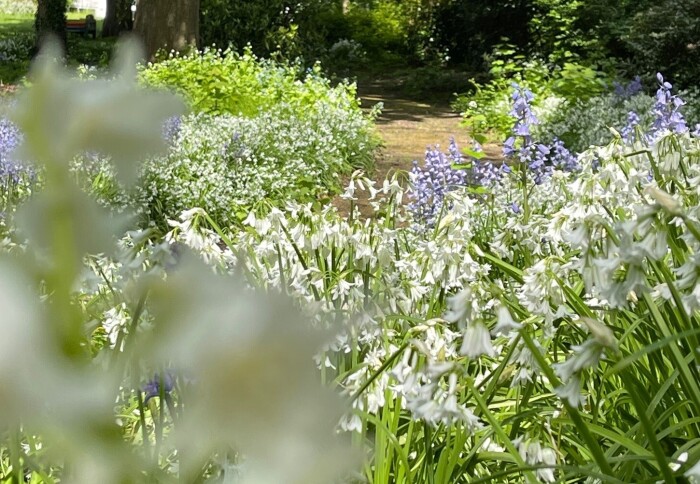No Mow May
by Jan Carberry

How doing nothing can do something for the environment and bio-diversity
May is the time when the soils are warm enough for grasses to really start shooting up.
If you see the grass in Princes Gardens and the Secret Garden on South Kensington Campus looking ‘overgrown’ next month, it’s for a good reason. We will be supporting a sustainability campaign, ‘No Mow May,’ with some areas being set aside to take part.
Annual campaign
Charity Plantlife’s aim is to make lasting positive change for wildflowers, plants and fungi. One of their most high-profile campaigns is ‘No Mow May’ the annual call to all garden owners and green space managers not to mow during the month – liberating grassed areas and providing a space for nature. This will give pollinators a much-needed boost. The initiative will boost the flowers, and nectar, available to pollinating insects such as bees, butterflies and moths.
The charity’s campaign research has revealed that mowing lawns less frequently can provide enough nectar sugar for ten times the number of bees, butterflies, moths, beetles and other pollinators. Last year's results showed that gardeners who took part reported up to 250 species of plants flowering within the grasses.
Bio-diversity
Providing food for pollinators is critical to their survival. We've lost 97% of our wildflower meadows in the past 70 years in the UK, and insects are in worrying decline with butterfly numbers down by about 50% since 1976, and 13 species of bee now extinct.
Head of Soft Services, Nic Dent, whose team are responsible for our grounds, said: “It will be interesting to see what flowers might grow in these areas. Assuming some appear, it will give them chance to set seed before the first cutting, making for healthier, more diverse areas”.
Do try this at home
Those of you with a lawned area at home could consider doing the same or turning over a small area to wilding, giving our pollinators a boost.
Article text (excluding photos or graphics) © Imperial College London.
Photos and graphics subject to third party copyright used with permission or © Imperial College London.
Reporter
Jan Carberry
Estates Division